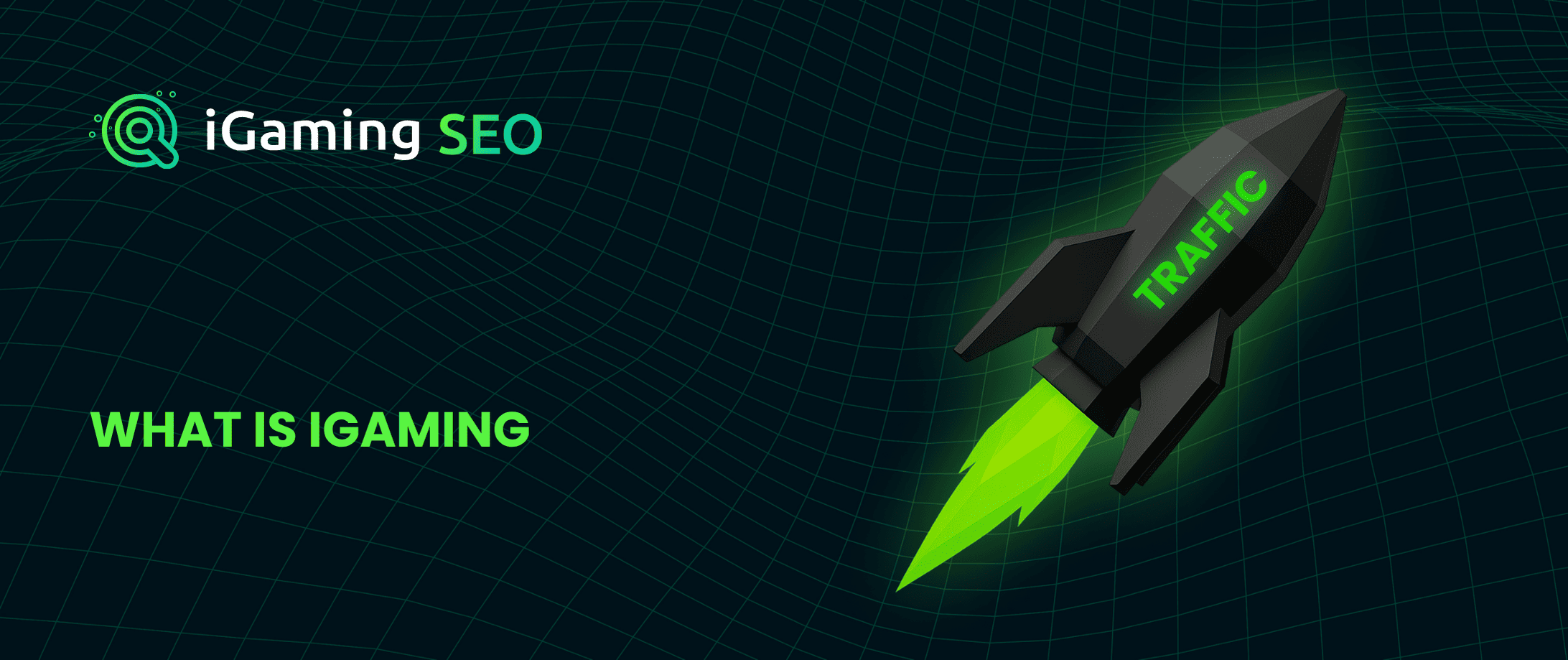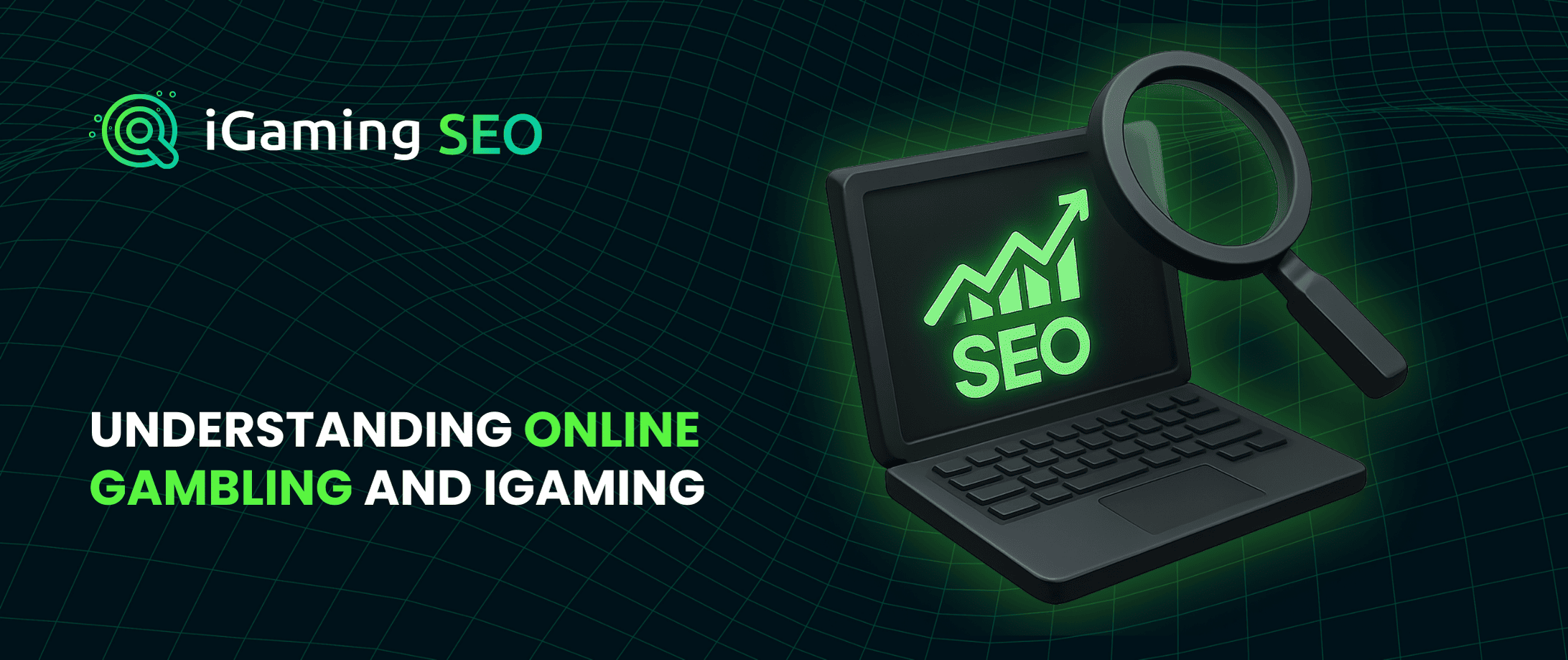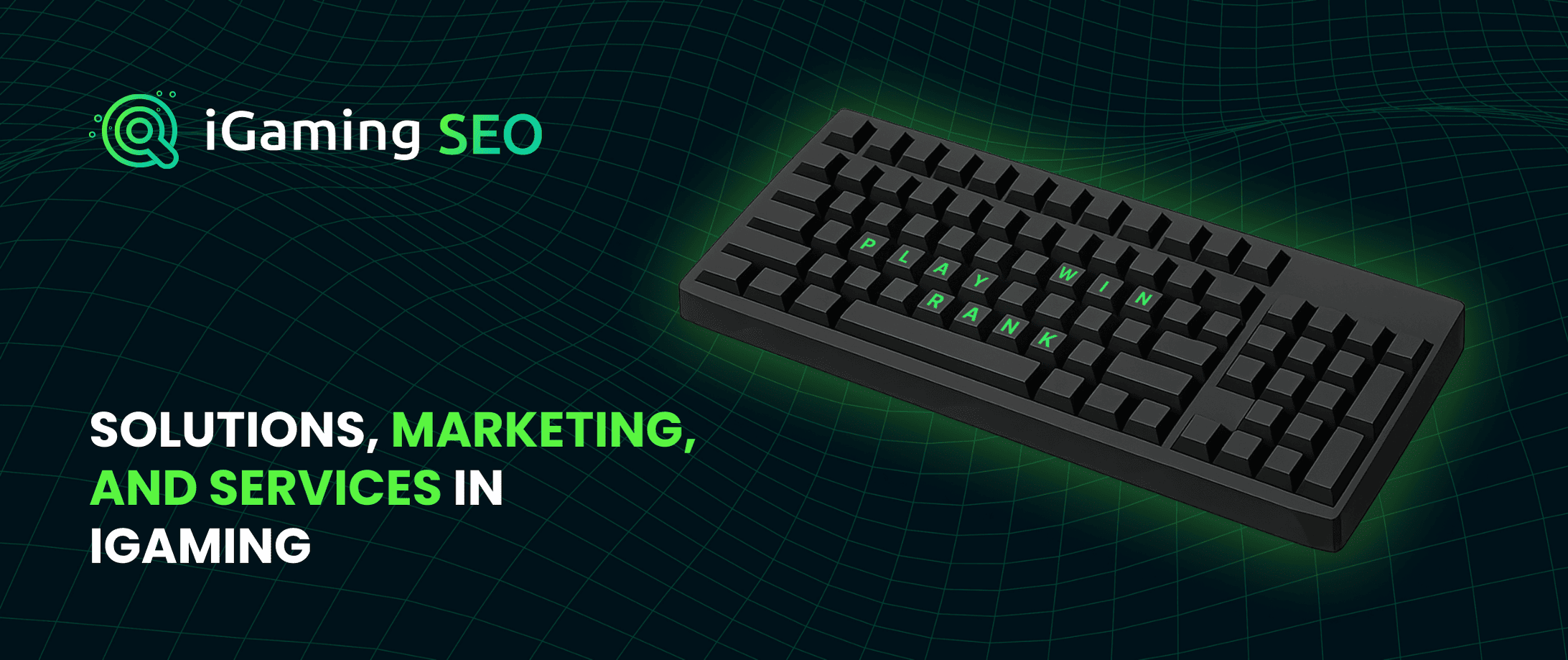
Welcome to the world of iGaming! In this digital era, iGaming has emerged as a dynamic and thriving industry that combines the excitement of gambling with the convenience of online platforms. But what exactly is iGaming? iGaming, short for “interactive gaming,” refers to the provision of various online gambling activities through digital platforms. It encompasses a wide range of gaming choices, including online casinos, sports betting, poker, bingo, and eSports, among various other options. As the iGaming industry continues to grow, operators and service providers strive to optimise their online presence and reach their target audience. That’s where the expertise of an iGaming SEO Agency comes into play.
An iGaming SEO Agency focuses on delivering search engine optimization (SEO) services that cater specifically to the distinctive requirements of iGaming enterprises. Their primary goal is to boost visibility, attract players, and secure a competitive edge for these businesses. We will explore the world of iGaming, its evolution, popular forms, benefits, regulations, technological advancements, responsible gambling practices, social responsibility, and future trends. Join us on this journey to discover the exciting realm of iGaming and the pivotal role it plays in the online gambling industry.
The Evolution of iGaming
The progression of iGaming is a fascinating voyage that encompasses numerous decades. We shall delve deeper into the significant milestones and breakthroughs that have moulded the industry into its present state.
- Emergence of Online Casinos: During the late 1990s, online casinos emerged as pioneers in the iGaming landscape, signalling the onset of a new era. These digital platforms presented players with the convenience of experiencing classic casino games like blackjack, poker, and slots, all within the confines of their own residences.
- Advancements in Technology: As technology continued to progress, so did the iGaming industry. The introduction of secure online payment methods, improved internet connectivity, and the development of sophisticated gaming software allowed for a more seamless and immersive online gambling experience.
- Mobile Gaming Revolution: The introduction of smartphones and tablets brought about a notable shift in the landscape of iGaming. Mobile gaming emerged as a catalyst for the industry’s expansion, granting players the flexibility to indulge in their preferred games while on the move.
- Live Dealer Games: One of the most notable advancements in iGaming was the introduction of live dealer games. This innovation bridged the gap between land-based and online casinos by offering players a real-time gaming experience with human dealers interacting with them via video streaming.
- Virtual Reality (VR) and Augmented Reality (AR): The incorporation of VR and AR technologies into iGaming has unlocked a realm of boundless potential. VR casinos provide players with the opportunity to venture into captivating virtual environments, while AR enriches the gaming experience by superimposing virtual elements onto the real world.
Understanding Online Gambling and iGaming

To fully grasp the igaming meaning, it’s important to understand how this term fits within the broader landscape of online gambling. Although iGaming and online gambling are often treated as synonyms, subtle differences distinguish iGaming as a specific segment of the online gambling industry.
Online gambling refers to a wide range of betting activities carried out on internet-based platforms. This broad category includes online casinos, poker rooms, sports betting sites, bingo games, and many other forms of digital wagering. It covers both chance-based games and those that require skill or strategic thinking.
iGaming (short for “interactive gaming”) — represents a focused area within online gambling. It involves engaging with digital interfaces, typically on computers or mobile devices, to participate in casino games, poker, and similar activities. What sets iGaming apart is its emphasis on an interactive, immersive user experience designed to make gameplay more dynamic and engaging.
In summary, while online gambling encompasses a broader range of activities, iGaming specifically focuses on the digital interactive gaming experience provided by online casinos and related platforms.
We learned what is i gaming, it became extremely important to delve into its diverse and exciting forms. This led us to explore popular destinations such as online casinos, sports betting, poker rooms, VR immersive gaming and the exciting world of esports.
Popular Forms of iGaming
iGaming encompasses various forms of online gambling, each with its own characteristics and player demographics. Let’s explore some of the most popular forms of iGaming.
- Online Casinos: Digital casinos serve as the foundation of iGaming, delivering a diverse selection of casino games such as slots, table games, and live dealer experiences. These online platforms grant players the exhilaration and enjoyment akin to that of a physical casino, all within the convenience of their own abodes. The first SEO niche also works with classic gambling – that’s why Casino SEO becomes popular many years ago.
- Sports Betting: Engaging in sports betting stands as a popular facet within the realm of iGaming, affording individuals the opportunity to wager on a diverse range of sporting events, encompassing football, basketball, tennis, horse racing, and more. Online sportsbooks provide a user-friendly platform for players to evaluate odds, place their bets, and potentially attain significant winnings based on the outcomes of these athletic contests.
- Poker: Virtual poker rooms provide an interactive environment for players to partake in online poker matches against opponents spanning the globe. These digital platforms present a diverse array of poker variations, tournaments, and cash games, accommodating the preferences of both casual players and seasoned poker aficionados.
- Bingo: Online bingo platforms bring the classic game of bingo to the digital realm. Players can participate in various bingo rooms, socialise with fellow players, and potentially win prizes by completing lines or full house patterns on their virtual bingo cards.
- eSports Betting: With the rising popularity of competitive video gaming, iGaming has extended its reach to include eSports betting. Enthusiasts can partake in wagering on professional eSports tournaments and matches, enabling them to predict the outcomes of thrilling competitions featured in renowned titles such as League of Legends, Counter-Strike: Global Offensive, and Dota 2.
Each form of iGaming attracts different types of players, catering to a diverse range of interests and preferences. The convenience and accessibility of these platforms contribute to their widespread popularity.
The Benefits of iGaming
iGaming offers numerous advantages and benefits to players, contributing to its growing popularity. Let’s explore some of the key benefits that iGaming brings to the table.
- Convenience and Accessibility: iGaming platforms provide unparalleled convenience, allowing players to access their favourite games at any time and from anywhere with an internet connection. This eliminates the need for physical travel to land-based casinos or betting shops, providing players with a hassle-free gaming experience.
- Wide Range of Gaming Options: iGaming platforms offer an extensive selection of games, ensuring that there’s something for everyone. From classic casino games like blackjack and roulette to modern video slots with immersive themes and innovative features, players have a vast array of gaming options at their fingertips.
- Bonuses and Promotions: iGaming operators often provide enticing bonuses and promotions to attract and reward players. These can include welcome bonuses, free spins, cashback offers, and loyalty programs. These bonuses can significantly enhance players’ gaming experience and provide additional chances to win.
- Flexibility and Customization: iGaming platforms offer players a high level of flexibility and customization. Players can choose their preferred stakes, adjust game settings, and even personalise their gaming environment to suit their preferences. This level of control enhances the overall gaming experience.
- Responsible Gaming Measures: Responsible gaming is a top priority in the iGaming industry. Operators implement measures such as deposit limits, self-exclusion programs, and responsible gambling tools to promote safe and responsible play. These measures aim to protect players from excessive gambling and ensure a positive and sustainable gaming experience.
The advantages of iGaming encompass more than just player satisfaction. This sector also fosters job opportunities, stimulates economic development, and generates tax revenues in jurisdictions where it operates under regulation.

iGaming Regulation and Licensing
To ensure fair play, player protection, and the integrity of the industry, iGaming is subject to regulation and licensing by relevant authorities. Let’s explore the regulatory landscape governing iGaming.
- Licensing Requirements: iGaming operators are required to obtain licences from regulatory bodies to offer their services legally. These licences impose certain conditions and obligations that operators must adhere to, ensuring compliance with regulations related to game fairness, security, responsible gambling, and more.
- Regulatory Bodies: Regulatory bodies play a crucial role in overseeing and enforcing the regulations governing iGaming. These bodies are responsible for issuing licences, conducting audits, and ensuring operators’ compliance with industry standards. Examples of prominent regulatory bodies include the United Kingdom Gambling Commission (UKGC), Malta Gaming Authority (MGA), and Gibraltar Regulatory Authority (GRA).
- Player Protection: Regulation in iGaming is designed to prioritise player protection. This includes measures such as age verification to prevent underage gambling, anti-money laundering protocols to prevent illicit activities, and mechanisms for resolving disputes between players and operators.
- Responsible Gambling Initiatives: Responsible gambling initiatives are an integral part of iGaming regulation. Operators are required to implement measures to promote responsible play, including providing resources for problem gambling support, offering self-exclusion options, and enforcing responsible gaming limits.
It is important for players to engage with licensed and regulated iGaming operators to ensure a safe and fair gaming experience.
Legality of iGaming: Where is iGaming Legal?
The permissibility of iGaming fluctuates across jurisdictions, as each country possesses its distinct set of laws and regulations governing online gambling. While certain nations have embraced iGaming and implemented comprehensive regulatory structures, others have imposed limitations or even outright prohibitions.
To provide a general overview, let’s examine the legal status of iGaming in some key regions.
| Region | Legal Status of iGaming |
| United Kingdom | iGaming is legal and well-regulated. The United Kingdom Gambling Commission (UKGC) oversees the licensing and regulation of online gambling operators. |
| Malta | Malta serves as a sought-after destination for iGaming operators, providing a conducive regulatory landscape. The Malta Gaming Authority (MGA) assumes the role of licensing and overseeing online gambling operations. |
| Gibraltar | Gibraltar is another prominent jurisdiction for iGaming operators. The Gibraltar Regulatory Authority (GRA) licences and regulates online gambling in the region. |
| United States | The permissibility of iGaming within the United States is subject to variation at the state level. Certain states, such as New Jersey, Nevada, and Pennsylvania, have embraced the legalisation of online gambling, while others maintain restrictions or outright prohibitions. |
| Canada | Canadian laws regarding iGaming are complex and vary by province. Some provinces operate their own online gambling platforms, while others prohibit or restrict online gambling. |
| The Philippines | The Philippines iGaming License has gained significant recognition, as the country has developed into a leading jurisdiction for iGaming operators. It offers a well-regulated framework, competitive tax incentives, and an attractive environment for businesses looking to operate legally and efficiently. |
| Macau | Known as the “Las Vegas of Asia,” Macau has a thriving land-based casino industry. Online gambling, including iGaming, is prohibited in Macau. |
| Australia | Online gambling is legal in Australia, but strict regulations govern the operation of iGaming platforms. |
| South Africa | Online gambling, including iGaming, is legal and regulated in South Africa, but operators must obtain a licence to offer their services legally. |
It is worth emphasising that the legal framework surrounding iGaming is in a state of constant development. Certain jurisdictions are actively working towards regulating online gambling, while others may introduce additional limitations. It is of utmost importance for players, operators, and service providers to remain up to date with the legal obligations and requirements within their specific jurisdictions.
Solutions, Marketing, and Services in iGaming

The iGaming industry is a highly competitive space, with numerous operators and providers vying for players’ attention. To thrive in this dynamic environment, operators need to employ effective solutions, marketing strategies, and services. Let’s explore some key aspects.
iGaming Platforms and Software Providers
iGaming platforms serve as the foundation for online casinos and other gambling websites. These platforms, developed by software providers, offer a wide range of features, including game libraries, player management systems, payment solutions, and customer support tools. Leading software providers in the iGaming industry include Microgaming, Playtech, NetEnt, and Evolution Gaming.
Game Development
Game development is a crucial aspect of iGaming, as innovative and engaging games are the lifeblood of online casinos. Game development studios create a diverse range of casino games, including slots, table games, poker, and live dealer games. These studios combine creativity, cutting-edge technology, and mathematical algorithms to deliver entertaining and fair gaming experiences.
Payment Solutions
Ensuring the prosperity of iGaming operators heavily relies on the accessibility of trustworthy and user-friendly payment systems. It is crucial for players to have a diverse selection of deposit and withdrawal methods at their disposal, encompassing credit cards, e-wallets, bank transfers, and cryptocurrencies. Esteemed payment solution providers like PayPal, Skrill, Neteller, and BitPay play a pivotal role in facilitating smooth financial transactions within the iGaming sector.
Regulation and Compliance
Given the regulatory landscape of the iGaming industry, operators must prioritise compliance with relevant laws and regulations. Compliance solutions and services help operators navigate legal requirements, verify player identities, and implement responsible gaming measures. These services contribute to a safe and transparent iGaming environment.
Customer Acquisition and Retention
Marketing plays a pivotal role in attracting and retaining players in the highly competitive iGaming market. iGaming operators employ various marketing strategies, including search engine optimization (SEO), social media marketing, affiliate programs, and loyalty schemes. An iGaming SEO agency specialises in optimising online casino websites to rank higher in search engine results, increasing visibility and driving iGaming organic traffic.
The Role of Technology in iGaming
The iGaming industry owes much of its success to the continuous advancements in technology. Technological innovations have not only facilitated the growth of iGaming but have also enhanced the overall gaming experience for players. Let’s explore the significant role of technology in iGaming.
Mobile Gaming in iGaming
Mobile gaming has emerged as a dominant force in the iGaming industry. With the widespread adoption of smartphones and tablets, players can now access their favourite casino games and betting opportunities on the go. The convenience and portability offered by mobile devices have revolutionised the way people engage with iGaming.
The popularity of mobile gaming in the iGaming industry can be attributed to various factors, including:
- Accessibility: Mobile gaming offers players freedom and convenience to enjoy preferred games anywhere with internet access. Whether on the go or at home, players can easily immerse in iGaming on mobile devices, providing unmatched convenience and flexibility.
- User Experience: Mobile apps and responsive websites have been developed to optimise the user experience for mobile gaming. These platforms provide intuitive interfaces, easy navigation, and optimised graphics to ensure a seamless and enjoyable gaming experience on smaller screens.
- Enhanced Features: Mobile gaming platforms often offer additional features tailored to mobile devices, such as touch controls, swipe gestures, and push notifications. These features enhance user engagement and create a more interactive and immersive gaming environment.
- Cross-Platform Integration: Many iGaming operators provide seamless integration between desktop and mobile platforms, allowing players to switch between devices without losing their progress or gaming history. This flexibility adds convenience and continuity to the gaming experience.
Virtual Reality (VR) and Augmented Reality (AR) in iGaming
The incorporation of cutting-edge Virtual Reality (VR) and Augmented Reality (AR) technologies has ushered in a realm of immense potential within the iGaming industry. These groundbreaking innovations have revolutionised the gaming experience, delivering unparalleled levels of immersion and interactivity. Let us explore the transformative impact of VR and AR on the iGaming landscape.
Virtual Reality (VR) in iGaming
Virtual Reality technology enables players to enter a simulated environment and interact with it using specialised VR headsets. In the iGaming context, VR offers players a realistic and immersive casino experience, replicating the atmosphere of a physical casino without leaving their homes.
The potential applications of VR in iGaming are vast:
- Virtual Casinos: VR allows players to step into virtual casino environments where they can walk around, interact with objects, and engage in games with other players. These virtual casinos simulate the ambiance of real-world casinos, complete with detailed graphics, realistic sounds, and social interactions.
- VR Slots and Table Games: VR technology enhances the gameplay experience of traditional casino games. Players can enjoy slot machines or play table games like blackjack or roulette in a fully immersive VR environment, with realistic visuals and interactive elements.
- VR Poker Tournaments: VR poker rooms enable players to engage in multiplayer poker tournaments, where they can see and interact with opponents seated at the virtual table. This adds a social element to online poker, replicating the experience of playing with others in a physical setting.
Augmented Reality (AR) in iGaming
Augmented Reality technology superimposes virtual elements onto the real-world environment, enhancing the player’s perception of reality. In the iGaming industry, AR offers unique experiences and opportunities:
- Live Dealer Experiences: AR can be used to create live dealer experiences, where players can see real dealers projected onto their screens while playing their favourite table games. This blend of virtual and real elements enhances the authenticity of the gaming experience.
- Interactive Betting: AR technology can enhance the sports betting experience by overlaying real-time data and statistics onto the player’s view, providing valuable information to make informed betting decisions. This interactive approach adds a new layer of engagement to sports betting activities.
- Enhanced Casino Tours: AR can be utilised to create virtual casino tours, allowing players to explore and interact with virtual casino environments by scanning their physical surroundings. This groundbreaking functionality brings together the realms of virtual and tangible, providing an unparalleled and captivating encounter.
Incorporating VR and AR technologies into iGaming opens up exciting possibilities for operators and players alike, creating a more immersive, interactive, and realistic gambling experience.
The continuous evolution of technology will likely bring even more advancements to the iGaming industry, paving the way for innovative gaming solutions and enhanced player experiences. As technology progresses, we can expect to witness further integration of artificial intelligence, blockchain technology, and other emerging trends in iGaming.
With the rapid growth and development of iGaming, it is crucial to explore the legal landscape surrounding this industry. The next section will provide an overview of the legal status of iGaming in various jurisdictions.
Responsible Gambling in iGaming
Responsible gambling practices play a vital role in the iGaming industry. With the escalating popularity of online gambling, it becomes increasingly vital to prioritize the safeguarding of players, foster responsible gaming practices, and address the potential hazards linked to excessive gambling habits. Let’s delve into the importance of responsible gambling in iGaming and the measures put in place to ensure player safety.
Player Protection Measures
To ensure a safe and secure gambling environment, iGaming operators implement various player protection measures. These measures are designed to safeguard players and promote responsible gambling practices. Key player protection measures in iGaming include:
- Age Verification: Operators have stringent age verification processes in place to prevent underage gambling. To participate in online gambling activities, players must furnish valid identification documents as proof of their age and eligibility.
- Account Security: iGaming platforms employ robust security measures to protect players’ personal and financial information. This includes encryption technologies, secure payment gateways, and strong account authentication protocols.
- Self-Exclusion Options: iGaming operators offer self-exclusion programs that allow players to voluntarily exclude themselves from gambling activities for a specified period. These options enable individuals to take control of their gambling habits and prevent excessive or problematic gambling behaviours.
- Responsible Gambling Tools: Many iGaming platforms provide responsible gambling tools, such as deposit limits, session limits, and reality checks. These tools empower players to set limits on their spending, time spent gambling, and receive reminders to ensure they maintain control over their gambling activities.
Responsible Gaming Initiatives
The iGaming industry recognizes the importance of promoting responsible gaming and actively engages in responsible gaming initiatives. These endeavours strive to increase consciousness, extend assistance to individuals facing challenges related to gambling, and foster a culture of responsible gaming within the sector.
Some notable responsible gaming initiatives in iGaming include:
- GamCare: GamCare is a leading provider of information, support, and advice for individuals affected by problem gambling. Many iGaming operators collaborate with GamCare to offer resources and helpline support to their players.
- Responsible Gambling Council (RGC): iGaming operators frequently collaborate with the RGC, a nonprofit organisation focused on mitigating the potential risks related to gambling. Together, they work towards implementing responsible gambling policies and adopting best practices to ensure a safe and enjoyable gaming environment for players.
- Community Engagement: iGaming companies actively engage with communities to promote responsible gambling. This includes organising awareness campaigns, supporting problem gambling prevention programs, and contributing to research and education initiatives related to responsible gambling.
iGaming and Social Responsibility
iGaming companies understand their social responsibility and actively strive to contribute positively to society. In addition to promoting responsible gambling practices, they engage in various initiatives to support problem gambling prevention and community well-being.
Problem Gambling Prevention
iGaming companies invest in problem gambling prevention measures to ensure the well-being of their players. This includes:
- Training and Education: iGaming operators provide training programs to their staff to help them identify signs of problem gambling and provide appropriate support and resources to at-risk players.
- Enhanced Player Support: Operators offer dedicated customer support channels to assist players seeking guidance or experiencing gambling-related problems. These support channels may include helplines, live chat, and email support.
- Collaboration with Experts: iGaming companies collaborate with problem gambling experts, researchers, and organisations to enhance their understanding of gambling-related issues and develop effective prevention strategies.
Community Engagement
iGaming operators actively engage with local communities to support social causes and promote community well-being. Some ways in which iGaming companies demonstrate social responsibility include:
- Philanthropic Initiatives: iGaming providers may donate a portion of their profits to charitable organisations or contribute to community development projects.
- Sponsorships and Partnerships: Many iGaming companies sponsor sports teams, events, and community programs, fostering positive relationships and contributing to local initiatives.
- Responsible Advertising: iGaming operators adhere to responsible advertising practices, ensuring their marketing efforts are targeted, transparent, and do not exploit vulnerable individuals or promote excessive gambling.
By prioritising responsible gambling practices and embracing social responsibility, iGaming companies play a crucial role in minimising the potential risks associated with online gambling and fostering a safe and enjoyable gambling environment for players.
A Case for iGaming: The Rise of an Industry
The growth and success of the iGaming industry can be attributed to several factors that have contributed to its popularity and widespread adoption. Let’s examine a compelling case for iGaming:
- Convenience and Accessibility: iGaming provides unparalleled convenience to players, allowing them to enjoy their favourite casino games anytime, anywhere. The accessibility of online gambling platforms eliminates the need for physical travel to land-based casinos, making it a convenient choice for players worldwide.
- Diverse Gaming Options: iGaming platforms offer an extensive selection of games, catering to various preferences and interests. From classic table games to modern video slots and immersive live dealer experiences, players can explore a vast array of gaming options within a few clicks.
- Technological Advancements: The integration of cutting-edge technologies has revolutionised the iGaming experience. Features such as live dealer games, virtual reality casinos, and mobile gaming have enhanced player immersion and engagement, providing a more realistic and enjoyable gambling experience.
- Responsible Gaming Measures: Responsible gaming is a top priority in the iGaming industry. Operators implement various measures, such as self-exclusion programs, deposit limits, and age verification processes, to promote responsible gambling practices and protect vulnerable players.
- Economic Impact: The iGaming industry has a significant economic impact, contributing to job creation, tax revenues, and overall economic growth. From game developers and software providers to customer support agents and marketing agencies, the industry supports a wide range of professionals and businesses.
The Future of iGaming
The iGaming industry is continuously evolving, driven by technological advancements and changing consumer preferences. In this section, we will explore the future trends and developments that will shape the landscape of iGaming, including the integration of emerging technologies and the expansion into new markets.
Gamification and Personalization in iGaming
Gamification and personalization are two key elements that will play a significant role in the future of iGaming. By incorporating gamification techniques and delivering personalised experiences, operators can enhance player engagement and satisfaction. Let’s take a closer look at how gamification and personalization are transforming the iGaming landscape.
- Gamification in iGaming: Gamification involves incorporating game-like elements into non-game contexts to make the experience more engaging and enjoyable. In iGaming, this can be achieved through features such as achievement systems, leaderboards, and rewards. By introducing these elements, operators can create a more immersive and interactive gaming environment, encouraging players to return and explore more games.
- Personalization in iGaming: Personalization aims to deliver tailored experiences to individual players based on their preferences, behaviour, and demographics. Through advanced data analytics and machine learning algorithms, operators can gather insights about players’ gaming habits and provide personalised recommendations, bonuses, and promotions. This level of customization enhances the player experience, fostering loyalty and increasing player retention.
Gamification and personalization will continue to evolve in iGaming, allowing operators to create dynamic and engaging experiences that cater to the unique preferences and motivations of each player.
Regulatory Changes and Market Expansion
As the iGaming industry continues to thrive, regulatory frameworks will undergo changes to adapt to the evolving landscape. Additionally, new markets will emerge, presenting both opportunities and challenges for iGaming operators. Let’s explore the potential regulatory changes and market expansion scenarios that lie ahead.
- Regulatory Changes: The regulatory landscape governing iGaming varies from one jurisdiction to another. Governments and regulatory bodies continuously review and update their policies to ensure player protection, responsible gambling, and fair play. Future regulatory changes may include stricter age verification measures, enhanced responsible gambling requirements, and increased transparency in advertising practices. Operators must stay informed about these changes and adapt their operations accordingly to remain compliant and maintain their licences.
- Market Expansion: iGaming has experienced substantial growth in recent years, but there are still untapped markets with significant potential. As technology advances and regulatory barriers are lifted in certain regions, new markets will open up for iGaming operators. Emerging markets in Asia, Latin America, and Africa, for example, present exciting opportunities for expansion. However, entering new markets also requires operators to navigate cultural differences, regulatory complexities, and localization challenges. Collaboration with local partners and thorough market research will be essential for successful market expansion.
The future of iGaming holds immense potential, with the integration of emerging technologies, the rise of gamification and personalization, and the exploration of new markets. By embracing these trends and proactively adapting to regulatory changes, iGaming providers can position themselves at the forefront of the industry, delivering innovative and engaging experiences to players worldwide.
Conclusion
iGaming is a dynamic and ever-evolving industry that has revolutionised the world of online gambling. From its definition as the intersection of technology and gambling to its future prospects, iGaming continues to shape the way players experience online gambling.
With the integration of emerging technologies, such as virtual reality, augmented reality, and blockchain, the iGaming industry is poised for even more significant advancements. These technologies will enhance player experiences, provide new opportunities for gamification and personalization, and drive the expansion of iGaming into new markets.
As the iGaming landscape evolves, operators, service providers, and regulators must work together to ensure responsible gambling practices, player protection, and adherence to regulatory requirements. By embracing innovation, fostering responsible gambling, and delivering exceptional gaming experiences, the iGaming industry can continue to thrive while providing a safe and enjoyable environment for players worldwide.
FAQ
What is iGaming industry?
The iGaming industry refers to the sector of online interactive gambling that includes casino games, sports betting, poker, bingo, and more. It operates through digital platforms accessible on computers and mobile devices.
Can I play iGaming games on my mobile device?
Yes, most iGaming platforms are fully optimized for mobile use, allowing players to enjoy games on smartphones and tablets with seamless performance.
Is iGaming legal?
The legality of iGaming depends on local regulations. Some countries fully regulate it, others restrict it, and some prohibit it entirely.



